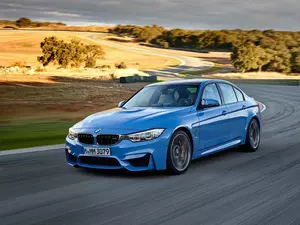
| Vehicle | Curb weight | Difference from world's smallest | Weight to power ratio | 0—60 mph acceleration ratio | Consumption ratio |
|---|---|---|---|---|---|
| 3.0 |
1560 kg / 3440 lbs |
1135 kg (2503 lbs) heavier | 4 kg to 1 hp | 400 kg/s (882 lbs/s) |
188 kg/L (415 lbs/L) |
| CS 3.0 |
1585 kg / 3495 lbs |
1160 kg (2558 lbs) heavier | 3 kg to 1 hp | 428 kg/s (944 lbs/s) |
191 kg/L (421 lbs/L) |
| Vehicle | 3.0 |
|---|---|
| Curb weight |
1560 kg / 3440 lbs |
| Difference from world's smallest | 1135 kg (1135 lbs) heavier |
| Weight to power ratio | 4 kg to 1 hp |
| 0—60 mph acceleration ratio | 400 kg/s (882 lbs/s) |
| Consumption ratio |
188 kg/L (415 lbs/L) |
| Vehicle | CS 3.0 |
| Curb weight |
1585 kg / 3495 lbs |
| Difference from world's smallest | 1160 kg (1160 lbs) heavier |
| Weight to power ratio | 3 kg to 1 hp |
| 0—60 mph acceleration ratio | 428 kg/s (944 lbs/s) |
| Consumption ratio |
191 kg/L (421 lbs/L) |
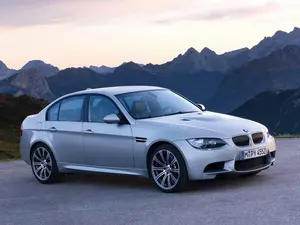
| Vehicle | Curb weight | Difference from world's smallest | Weight to power ratio | 0—60 mph acceleration ratio | Consumption ratio |
|---|---|---|---|---|---|
| 4.0 |
1605 kg / 3539 lbs |
1180 kg (2602 lbs) heavier | 4 kg to 1 hp | 341 kg/s (752 lbs/s) |
129 kg/L (284 lbs/L) |
| Vehicle | 4.0 |
|---|---|
| Curb weight |
1605 kg / 3539 lbs |
| Difference from world's smallest | 1180 kg (1180 lbs) heavier |
| Weight to power ratio | 4 kg to 1 hp |
| 0—60 mph acceleration ratio | 341 kg/s (752 lbs/s) |
| Consumption ratio |
129 kg/L (284 lbs/L) |
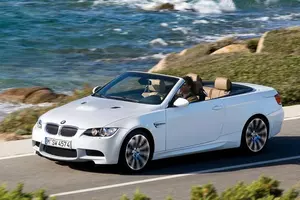
| Vehicle | Curb weight | Difference from world's smallest | Weight to power ratio | 0—60 mph acceleration ratio | Consumption ratio |
|---|---|---|---|---|---|
| 4.0i |
1810 kg / 3991 lbs |
1385 kg (3054 lbs) heavier | 4 kg to 1 hp | 362 kg/s (798 lbs/s) |
143 kg/L (315 lbs/L) |
| Vehicle | 4.0i |
|---|---|
| Curb weight |
1810 kg / 3991 lbs |
| Difference from world's smallest | 1385 kg (1385 lbs) heavier |
| Weight to power ratio | 4 kg to 1 hp |
| 0—60 mph acceleration ratio | 362 kg/s (798 lbs/s) |
| Consumption ratio |
143 kg/L (315 lbs/L) |

| Vehicle | Curb weight | Difference from world's smallest | Weight to power ratio | 0—60 mph acceleration ratio | Consumption ratio |
|---|---|---|---|---|---|
| 4.0i |
1655 kg / 3649 lbs |
1230 kg (2712 lbs) heavier | 4 kg to 1 hp | 360 kg/s (794 lbs/s) |
133 kg/L (293 lbs/L) |
| GTS 4.4 |
1530 kg / 3374 lbs |
1105 kg (2437 lbs) heavier | 3 kg to 1 hp | 364 kg/s (803 lbs/s) |
120 kg/L (265 lbs/L) |
| Vehicle | 4.0i |
|---|---|
| Curb weight |
1655 kg / 3649 lbs |
| Difference from world's smallest | 1230 kg (1230 lbs) heavier |
| Weight to power ratio | 4 kg to 1 hp |
| 0—60 mph acceleration ratio | 360 kg/s (794 lbs/s) |
| Consumption ratio |
133 kg/L (293 lbs/L) |
| Vehicle | GTS 4.4 |
| Curb weight |
1530 kg / 3374 lbs |
| Difference from world's smallest | 1105 kg (1105 lbs) heavier |
| Weight to power ratio | 3 kg to 1 hp |
| 0—60 mph acceleration ratio | 364 kg/s (803 lbs/s) |
| Consumption ratio |
120 kg/L (265 lbs/L) |
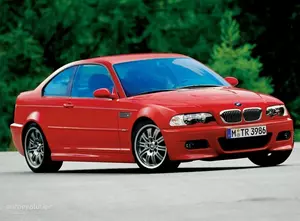
| Vehicle | Curb weight | Difference from world's smallest | Weight to power ratio | 0—60 mph acceleration ratio | Consumption ratio |
|---|---|---|---|---|---|
| 3.2i 24V |
1495 kg / 3296 lbs |
1070 kg (2359 lbs) heavier | 4 kg to 1 hp | 305 kg/s (673 lbs/s) |
126 kg/L (278 lbs/L) |
| CSL 3.2i 24V |
1310 kg / 2889 lbs |
885 kg (1952 lbs) heavier | 4 kg to 1 hp | 279 kg/s (615 lbs/s) |
110 kg/L (243 lbs/L) |
| Vehicle | 3.2i 24V |
|---|---|
| Curb weight |
1495 kg / 3296 lbs |
| Difference from world's smallest | 1070 kg (1070 lbs) heavier |
| Weight to power ratio | 4 kg to 1 hp |
| 0—60 mph acceleration ratio | 305 kg/s (673 lbs/s) |
| Consumption ratio |
126 kg/L (278 lbs/L) |
| Vehicle | CSL 3.2i 24V |
| Curb weight |
1310 kg / 2889 lbs |
| Difference from world's smallest | 885 kg (885 lbs) heavier |
| Weight to power ratio | 4 kg to 1 hp |
| 0—60 mph acceleration ratio | 279 kg/s (615 lbs/s) |
| Consumption ratio |
110 kg/L (243 lbs/L) |

| Vehicle | Curb weight | Difference from world's smallest | Weight to power ratio | 0—60 mph acceleration ratio | Consumption ratio |
|---|---|---|---|---|---|
| 3.2i 24V |
1655 kg / 3649 lbs |
1230 kg (2712 lbs) heavier | 5 kg to 1 hp | 318 kg/s (701 lbs/s) |
137 kg/L (302 lbs/L) |
| Vehicle | 3.2i 24V |
|---|---|
| Curb weight |
1655 kg / 3649 lbs |
| Difference from world's smallest | 1230 kg (1230 lbs) heavier |
| Weight to power ratio | 5 kg to 1 hp |
| 0—60 mph acceleration ratio | 318 kg/s (701 lbs/s) |
| Consumption ratio |
137 kg/L (302 lbs/L) |
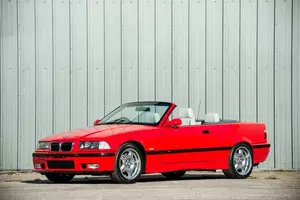
| Vehicle | Curb weight | Difference from world's smallest | Weight to power ratio | 0—60 mph acceleration ratio | Consumption ratio |
|---|---|---|---|---|---|
| 3.0i |
1540 kg / 3396 lbs |
1115 kg (2459 lbs) heavier | 5 kg to 1 hp | 261 kg/s (576 lbs/s) |
169 kg/L (373 lbs/L) |
| 3.2 |
1560 kg / 3440 lbs |
1135 kg (2503 lbs) heavier | 5 kg to 1 hp | 294 kg/s (648 lbs/s) |
141 kg/L (311 lbs/L) |
| Vehicle | 3.0i |
|---|---|
| Curb weight |
1540 kg / 3396 lbs |
| Difference from world's smallest | 1115 kg (1115 lbs) heavier |
| Weight to power ratio | 5 kg to 1 hp |
| 0—60 mph acceleration ratio | 261 kg/s (576 lbs/s) |
| Consumption ratio |
169 kg/L (373 lbs/L) |
| Vehicle | 3.2 |
| Curb weight |
1560 kg / 3440 lbs |
| Difference from world's smallest | 1135 kg (1135 lbs) heavier |
| Weight to power ratio | 5 kg to 1 hp |
| 0—60 mph acceleration ratio | 294 kg/s (648 lbs/s) |
| Consumption ratio |
141 kg/L (311 lbs/L) |

| Vehicle | Curb weight | Difference from world's smallest | Weight to power ratio | 0—60 mph acceleration ratio | Consumption ratio |
|---|---|---|---|---|---|
| GT 3.0 |
1440 kg / 3175 lbs |
1015 kg (2238 lbs) heavier | 5 kg to 1 hp | 257 kg/s (567 lbs/s) |
158 kg/L (348 lbs/L) |
| 3.0i |
1460 kg / 3219 lbs |
1035 kg (2282 lbs) heavier | 5 kg to 1 hp | 256 kg/s (564 lbs/s) |
160 kg/L (353 lbs/L) |
| 3.2 |
1460 kg / 3219 lbs |
1035 kg (2282 lbs) heavier | 5 kg to 1 hp | 281 kg/s (620 lbs/s) |
133 kg/L (293 lbs/L) |
| Vehicle | GT 3.0 |
|---|---|
| Curb weight |
1440 kg / 3175 lbs |
| Difference from world's smallest | 1015 kg (1015 lbs) heavier |
| Weight to power ratio | 5 kg to 1 hp |
| 0—60 mph acceleration ratio | 257 kg/s (567 lbs/s) |
| Consumption ratio |
158 kg/L (348 lbs/L) |
| Vehicle | 3.0i |
| Curb weight |
1460 kg / 3219 lbs |
| Difference from world's smallest | 1035 kg (1035 lbs) heavier |
| Weight to power ratio | 5 kg to 1 hp |
| 0—60 mph acceleration ratio | 256 kg/s (564 lbs/s) |
| Consumption ratio |
160 kg/L (353 lbs/L) |
| Vehicle | 3.2 |
| Curb weight |
1460 kg / 3219 lbs |
| Difference from world's smallest | 1035 kg (1035 lbs) heavier |
| Weight to power ratio | 5 kg to 1 hp |
| 0—60 mph acceleration ratio | 281 kg/s (620 lbs/s) |
| Consumption ratio |
133 kg/L (293 lbs/L) |
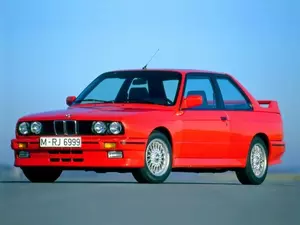
| Vehicle | Curb weight | Difference from world's smallest | Weight to power ratio | 0—60 mph acceleration ratio | Consumption ratio |
|---|---|---|---|---|---|
| 2.5 |
1200 kg / 2646 lbs |
775 kg (1709 lbs) heavier | 5 kg to 1 hp | 194 kg/s (428 lbs/s) |
136 kg/L (300 lbs/L) |
| 2.3 |
1200 kg / 2646 lbs |
775 kg (1709 lbs) heavier | 6 kg to 1 hp | 188 kg/s (415 lbs/s) |
154 kg/L (340 lbs/L) |
| Vehicle | 2.5 |
|---|---|
| Curb weight |
1200 kg / 2646 lbs |
| Difference from world's smallest | 775 kg (775 lbs) heavier |
| Weight to power ratio | 5 kg to 1 hp |
| 0—60 mph acceleration ratio | 194 kg/s (428 lbs/s) |
| Consumption ratio |
136 kg/L (300 lbs/L) |
| Vehicle | 2.3 |
| Curb weight |
1200 kg / 2646 lbs |
| Difference from world's smallest | 775 kg (775 lbs) heavier |
| Weight to power ratio | 6 kg to 1 hp |
| 0—60 mph acceleration ratio | 188 kg/s (415 lbs/s) |
| Consumption ratio |
154 kg/L (340 lbs/L) |
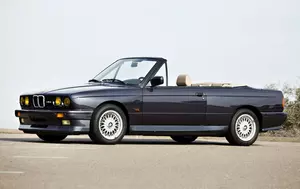
| Vehicle | Curb weight | Difference from world's smallest | Weight to power ratio | 0—60 mph acceleration ratio | Consumption ratio |
|---|---|---|---|---|---|
| 2.3 |
1360 kg / 2999 lbs |
935 kg (2062 lbs) heavier | 7 kg to 1 hp | 197 kg/s (434 lbs/s) |
153 kg/L (337 lbs/L) |
| Vehicle | 2.3 |
|---|---|
| Curb weight |
1360 kg / 2999 lbs |
| Difference from world's smallest | 935 kg (935 lbs) heavier |
| Weight to power ratio | 7 kg to 1 hp |
| 0—60 mph acceleration ratio | 197 kg/s (434 lbs/s) |
| Consumption ratio |
153 kg/L (337 lbs/L) |